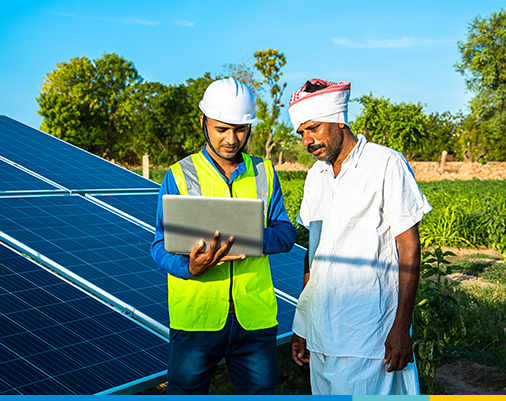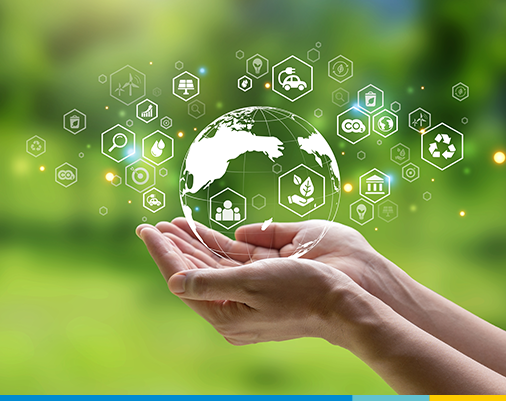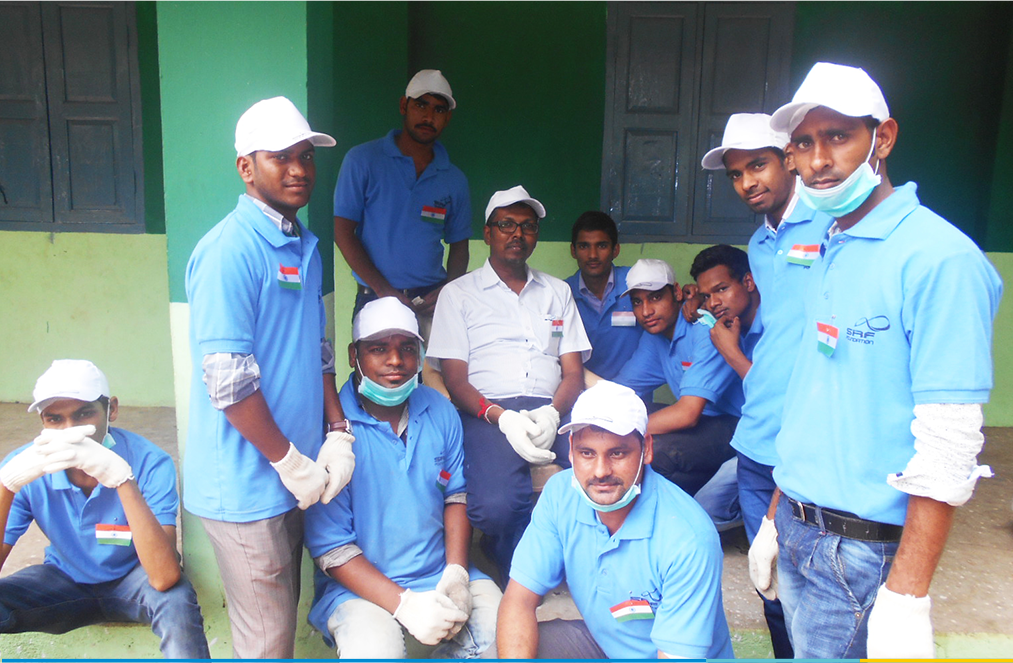Environment and Social Responsibility is one of our Aspirations for 2030. In line with our aspirations, SRF considers environmental stewardship a key responsibility, and we are constantly working towards reducing our ecological footprint. Our objective is to manage the impact of our operations by responsibly managing materials, energy, emissions, water, and waste
Energy Management
GHG Emission Reduction
Air Emissions
Water Conservation
Waste Managemen
of energy consumed
KL of water consumed
of green energy and biomass consumption
KL of water recycled
Our approach to managing natural capital is based on our strategies for enhanced procurement of green energy, efficient utilisation of freshwater consumption, pollution control, and proper waste management.
SRF adheres to all relevant environmental regulations and conducts periodic assessment of environment, health and safety parameters across our various businesses to demonstrate our dedication to environmental protection. Our plants are ISO 14001 certified reinforcing the commitment as mentioned in the Company’s Environment, Health & Safety Policy.
Being cognisant of the risks associated with climate change and the heavy cost of global warming, we have initiated efforts towards transitioning to an energy efficient and clean energy future. We have been taking action to decarbonise our business by implementing various energy and emissions reduction initiatives and enhancing the use of renewable energy in our operations.
In FY23, our renewable energy and biomass consumption accounts for 1,201 TJ. We are driving efforts to increase the share of renewable power in our electricity mix by implementing solar power generation projects and entering into power purchase agreements with third-party agencies.

Our total energy savings in FY 2022-23 are tabulated business-wise:
| 6,242 MWh | 954 MWh | 3,487 MWh |
| Chemicals | Packaging Films | Technical Textiles |
| Refer to Principle 6, Essential Indicator 1 for more details | Refer to Principle 6, Essential Indicator 5 for more details |
SRF’s Fluorochemicals Business is the first Indian chemical Company to obtain the ISO 14064-1: 2006 certification for verification of our greenhouse gas emissions. We have calculated our Greenhouse Gas (GHG) emissions, i.e., Scope 1 i.e. emissions from burning of fossil fuels by the Company, and Scope 2 i.e. emissions from purchased electricity emissions data in accordance with the GHG Protocol Corporate Accounting and Reporting Standard.
We recognise the significance of measuring and supervising the emission of air pollutants resulting from our activities. We not only adhere to the regulations set by the Pollution Control Boards in the states where we operate but our top priority is always to maintain the air quality within and around our facilities. We have established automated monitoring mechanisms to ensure that our air emissions are under control during the manufacturing processes, and we regularly conduct stack monitoring for utilities such as boilers and diesel generators.
At our operations, we strive to continuously improve our efforts to minimise water consumption. This is achieved through the adoption of various water-efficient technologies, the recycling and reuse of treated wastewater in processes and the practice of rainwater harvesting. Additionally, we are in the process of implementing a seawater desalination project in partnership with local authorities which will further reduce our dependency on freshwater resources.
Our plants are equipped with wastewater purification systems to ensure that the quality of wastewater released is within the permissible limits set by the respective Pollution Control Boards. In addition, the Company re-uses treated wastewater for humidification and the development of green-belt areas. The quality of the treated wastewater is monitored through third-party agencies before being discharged into garden areas.
We have continued to focus on rainwater harvesting for groundwater recharge as well as utilisation within the plants.

We are committed to responsible waste management and strive to integrate waste reduction, resource efficiency, and safe disposal practices into our business operations.
We collaborate with authorised vendors for the safe and responsible disposal of our waste, ensuring that all regulatory requirements are met. We maintain comprehensive records of waste generation, disposal, and treatment, and conduct regular internal audits to ensure compliance with waste management regulations.
As a responsible organisation, we recognise the importance of preserving biodiversity in the areas surrounding our business units and we are committed to taking measures to achieve this objective. We have implemented several initiatives, including collaborating with schools in and around our units as a part of our CSR programs.
We also recognise the importance of raising awareness about biodiversity conservation among our stakeholders. We engage with local communities, schools, and NGOs to promote environmental education and awareness. We encourage our employees to participate in biodiversity conservation activities, such as tree plantation drives and awareness campaigns.
